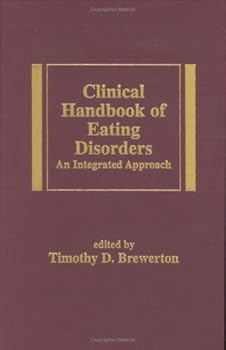

Many young people and adults struggle with concerns about their body image and weight. According to the 2003 Youth Risk Behavior Survey, a national poll of high-school students that assessed various types of risk-related behavior, 6 percent of teenagers had vomited or taken laxatives and 13 percent had fasted for 24 hours or more to control their weight during the previous month. Eating disorders have become more common in recent decades, and more patients are presenting for help with these problems. In this light, Clinical Handbook of Eating Disorders is timely. The book serves as an excellent guide to current information for researchers and for physicians who want to know more about eating disorders. The book contains a vast array of information that covers all aspects of the management of eating disorders, including anorexia nervosa, bulimia nervosa, and binge-eating disorder. It is easily read and progresses from background information (including diagnostic problems, epidemiology, and risk factors) to genetic implications and medical, nutritional, and psychological methods of treatment. The book includes a particularly strong section on the neurologic manifestations of eating disorders, with discussions of brain imaging and alterations in neurotransmitters. A major strength is the emphasis on evidence-based medicine and research. Most chapters offer the reader a framework for understanding the topic under discussion. Following the introduction, the authors comprehensively and critically review the literature to give a well-rounded view of all facets of research areas within the topic. One example of an outstanding chapter is that by Cynthia Bulik on the role of genetics in anorexia nervosa, bulimia nervosa, and binge-eating disorder, in which she systematically analyzes the evidence by reviewing studies of families and twins. I highly recommend this book for all clinicians and researchers who are looking for an up-to-date, research-oriented guide to eating disorders. Timothy Brewerton has done an outstanding job of pulling together a handbook for all practitioners who care for these patients. Sara F. Forman, M.D.
Copyright © 2005 Massachusetts Medical Society. All rights reserved. The New England Journal of Medicine is a registered trademark of the MMS.
No comments:
Post a Comment